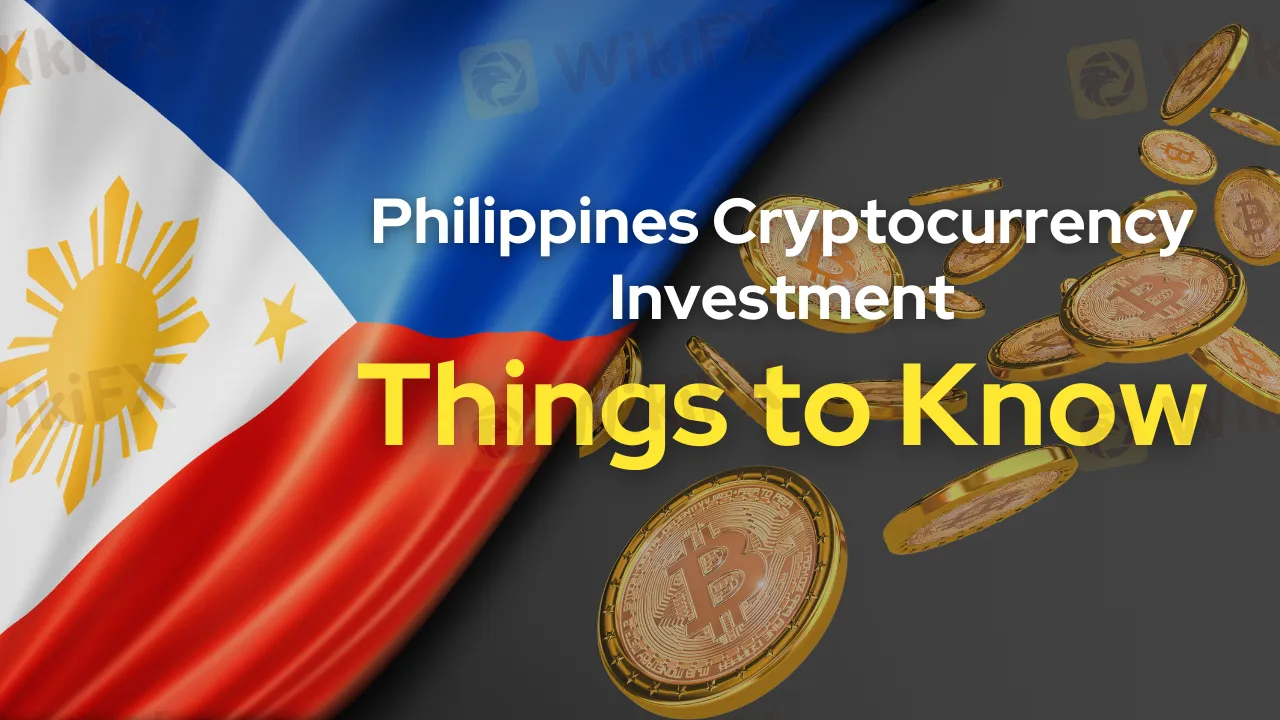简体中文
繁體中文
English
Pусский
日本語
ภาษาไทย
Tiếng Việt
Bahasa Indonesia
Español
हिन्दी
Filippiiniläinen
Français
Deutsch
Português
Türkçe
한국어
العربية
Philippines Cryptocurrency Investment: Things to Know
Abstract:Discover Philippines Cryptocurrency Investment: Regulations, Exchanges, Risks, and Trends. Essential info before you invest in Filipino crypto.

The Philippines, with its increasing interest in digital assets, has seen a considerable uptick in cryptocurrency investment. Over 4 million Filipinos are now taking part in this digital revolution. With a massive 76 billion pesos transacted in 2020 alone, the country is establishing itself as a notable player in the crypto world. But before you jump in, here's some essential information to understand.
Cryptocurrency Regulations in the Philippines
The Philippines has embraced cryptocurrency but with certain conditions. While cryptocurrency transactions are allowed, they aren't seen as 'legal tender'. This means you can't use them like the regular Philippine peso for everyday transactions.
In 2021, the Central Bank introduced the Guidelines for VASPs (Virtual Asset Service Providers). If you're planning to run a business related to digital currencies, like an exchange, you'd need a Certificate of Authority from the Central Bank. Not just that, VASPs are expected to have a strong cybersecurity infrastructure and must protect the client's personal and financial data against threats like cyberattacks. It's also crucial to ensure processes are in place to prevent money laundering and other illegal activities.
Virtual Currency Exchanges have their set of rules too. Under BSP Circular 944, these exchanges must register themselves with the Central Bank. They are expected to follow strict protocols ensuring customer protection and robust technology risk management.
On a side note, the Securities and Exchange Commission (SEC) has its eyes on cloud mining contracts. In 2018, it termed these contracts as illegal. Why? Because they involve security sales to the public without being registered with the SEC.

Legitimate Cryptocurrency Exchanges in the Philippines
If you're ready to step into the cryptocurrency game, start by picking a trustworthy exchange. Here are a couple of them:
Philippine Digital Asset Exchange (PDAX): This platform started its journey in 2018. Regulated by the Central Bank, PDAX is a safe haven for trading prominent coins like Bitcoin, Ethereum, and Ripple. Plus, you can easily convert your digital assets to Philippine pesos.
Coins.ph: Another platform regulated by the Central Bank, is Coins. ph offers trading options for Bitcoin, Ethereum, and other popular coins. With a nominal charge of Php 10 for withdrawal, this platform offers free trading.
Risks of Investing in Cryptocurrency in the Philippines
Every investment has risks, and cryptocurrency is no exception. When venturing into the digital currency landscape in the Philippines, be wary of:
Price volatility: Cryptocurrencies can be unpredictable.
Ransomware attacks: Hackers demanding cryptocurrency as ransom.
Scams: There are plenty of them, so be cautious.
Technical glitches: Digital platforms might face downtimes or technical issues.
Protect yourself from these risks by choosing BSP-regulated exchanges. If you're planning to invest big, consider hiring a crypto fund administrator in the country.
Cryptocurrency Growth and Trends in the Philippines
The Philippines has been open-minded about cryptocurrency. A think tank, the Economist Intelligence Unit (EIU), commented that the country maintains a 'benign approach' towards digital assets. This growing interest can be traced back to the robust remittance landscape, which hit an astounding USD 31.418 billion in 2021.
The EIU suggests that in the future, the Philippines government may push for more cryptocurrency uses, fuelled by supportive policies. However, don't expect cryptocurrency to replace the peso any time soon. The chances of it becoming the primary method of payment seem slim.
In conclusion, the Philippines, with its evolving regulations and substantial growth, is an intriguing spot for cryptocurrency investments. However, always be informed, make cautious decisions, and, most importantly, understand the landscape before diving in.
Stay updated on the latest cryptocurrency news. Access the all the news on the go by installing the WikiFX App on your smartphone.
Download the App here: https://www.wikifx.com/en/download.html

Disclaimer:
The views in this article only represent the author's personal views, and do not constitute investment advice on this platform. This platform does not guarantee the accuracy, completeness and timeliness of the information in the article, and will not be liable for any loss caused by the use of or reliance on the information in the article.
Read more

Top Forex Trading Strategies Every Trader Must Implement
Successfully navigating the fluctuating forex market landscape requires more than having a high-risk appetite. It requires effective strategies that assure you gains even during the market fall. Let’s go through the strategies many traders implement to gain.

Vantage Markets Review 2025: Trusted Forex and CFD Trading Since 2009
Explore our 2025 Vantage Markets review! A trusted Sydney-based broker since 2009, offering forex, CFDs, low spreads, global regulation, and 24/7 support. Trade from $50!

Top Tips to Choose the Best Forex Broker in 2025
You need a solid forex broker to make the most of the currency fluctuation. The strategies they use to take you through the ups and downs of forex trading are beyond words. While the strategies may seem solid, the eventual gains matter more. That’s where you need to take notice of the forex brokers, how they approach, their fee structure, rating, etc. To help you evaluate forex brokers better, we have this guide for you. Read it to choose the right forex broker in 2025.

IronFX vs Exness Review 2025: Comprehensive Broker Comparison
Explore an in-depth comparison between IronFX and Exness. Compare licensing, features, regulation, trading platforms, and customer service for smarter trading decisions.
WikiFX Broker
Latest News
SkyLine Guide 2025 Malaysia: 100 Esteemed Judges Successfully Assembled
Vantage Markets Review 2025: Trusted Forex and CFD Trading Since 2009
Why STARTRADER Is Popular Among Traders?
A Guide to Intraday Forex Trading You Can't Miss Out
CONSOB Blocks Access to 13 Unauthorized Investment Websites
TradingPRO: A Closer Look at Its Licences
The world could be facing another ‘China shock,’ but it comes with a silver-lining
New SEBI Regulations on Intraday Trading
Everything You need to know about Barath Trade
IronFX Broker Review 2025: A Comprehensive Analysis of Trustworthiness and Performance
Currency Calculator


